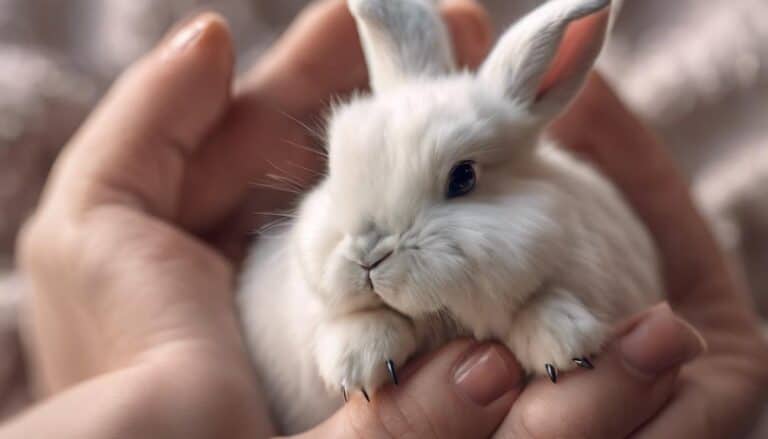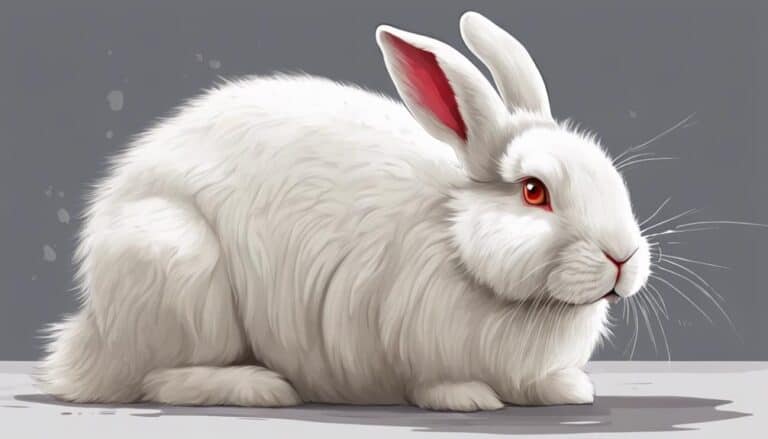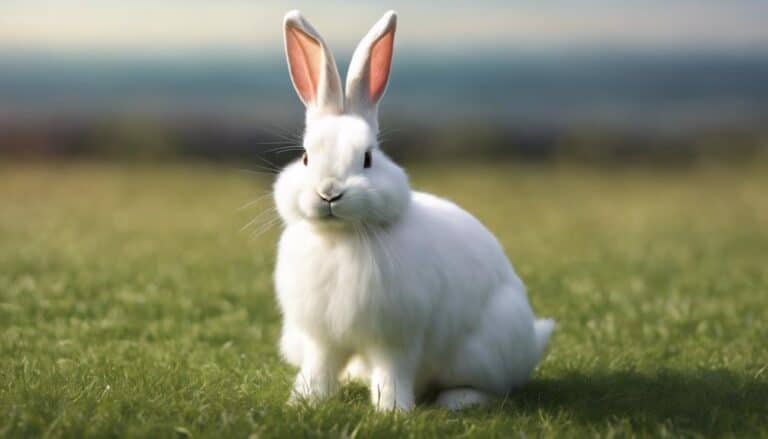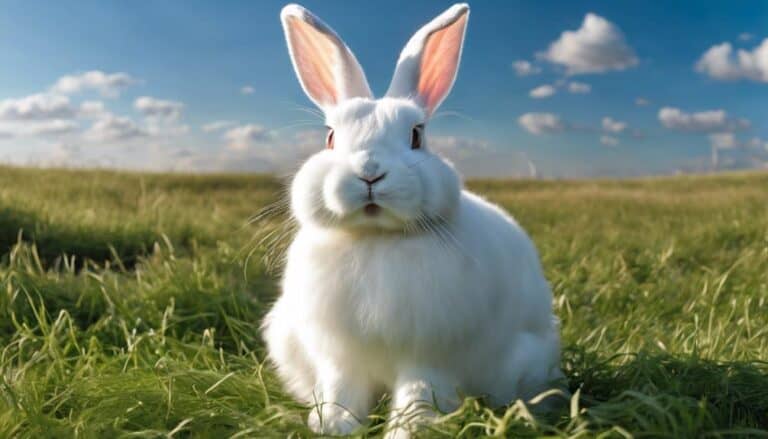You might think bunnies have an insatiable love for carrots, but the reality is more nuanced than that. While bunnies can enjoy carrots as a snack, their dietary needs extend beyond this popular belief.
Delving into the intricacies of a bunny's diet reveals a vital balance that goes beyond just munching on carrots. So, why might bunnies not be as crazy for carrots as you think?
Contents
Key Takeaways
- Carrots are not a preferred staple for rabbits due to high sugar content.
- Rabbits enjoy carrots as occasional treats, not as a primary food.
- Overfeeding carrots can lead to health issues like obesity and dental problems.
- Prioritize a balanced diet with hay, greens, and limited carrots for rabbit health.
Bunny Diet Myths Debunked
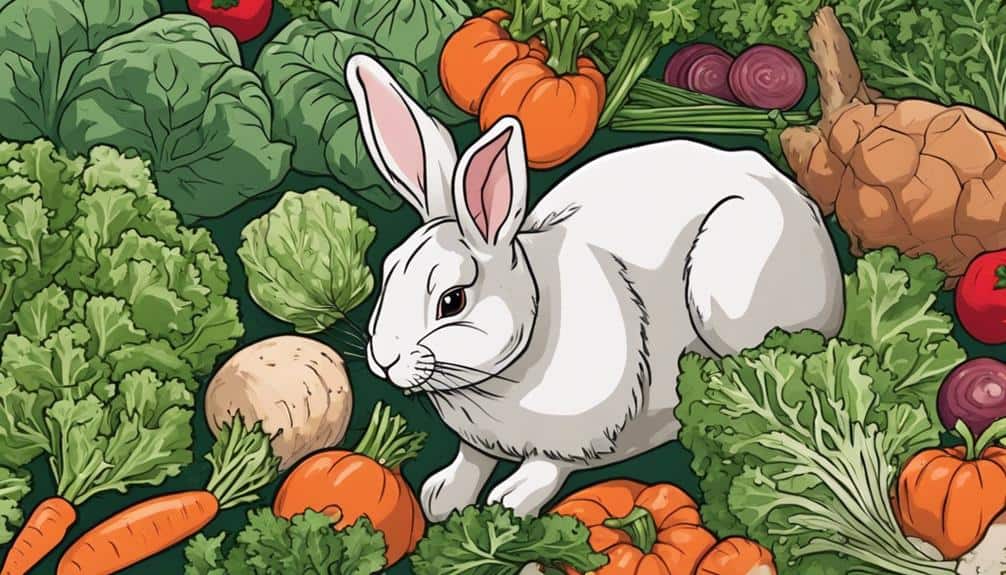
Have you ever wondered if bunnies truly like carrots as much as they're portrayed to? While it's commonly believed that rabbits have an insatiable craving for carrots, the reality is quite different when it comes to their dietary needs. Carrots, while loved as a treat by many rabbits, shouldn't be a staple in their diet. This is because carrots are high in sugar and lack essential nutrients that are important for a rabbit's health.
In the wild, rabbits don't naturally consume root vegetables like carrots. Their diet primarily consists of hay, grass, and leafy greens. While rabbits can eat carrots, they should only be given in moderation as an occasional treat. A balanced rabbit diet should include a variety of foods such as hay, grass, leafy greens, and measured pellets to make sure they receive all the necessary nutrients without overloading on sugar. Overfeeding rabbits with carrots can lead to health issues like tooth decay, obesity, and digestive problems. It's important to prioritize a balanced diet over indulging rabbits with foods high in sugar like carrots.
The Truth About Carrots
When it comes to rabbits and their diet, the truth about carrots is that while they may be enjoyed as an occasional treat, they aren't a necessary component for a balanced and healthy rabbit diet. While Bugs Bunny may have popularized the image of rabbits munching on carrots, real-life bunnies have different dietary needs.
Here are some important facts to take into account:
- Carrots aren't a natural or essential part of a rabbit's diet as they're high in sugar and should be given as occasional treats.
- Rabbits should primarily consume hay, grass, leafy greens, and measured pellets for a balanced diet.
- Overfeeding rabbits with carrots can lead to health issues such as obesity and digestive problems.
- Bugs Bunny's love for carrots in cartoons has perpetuated the misconception that rabbits rely heavily on carrots as a main food source.
- Carrots should be limited to one or two tablespoons per rabbit daily to prevent health issues and maintain a balanced diet.
Hay: More Than Bedding
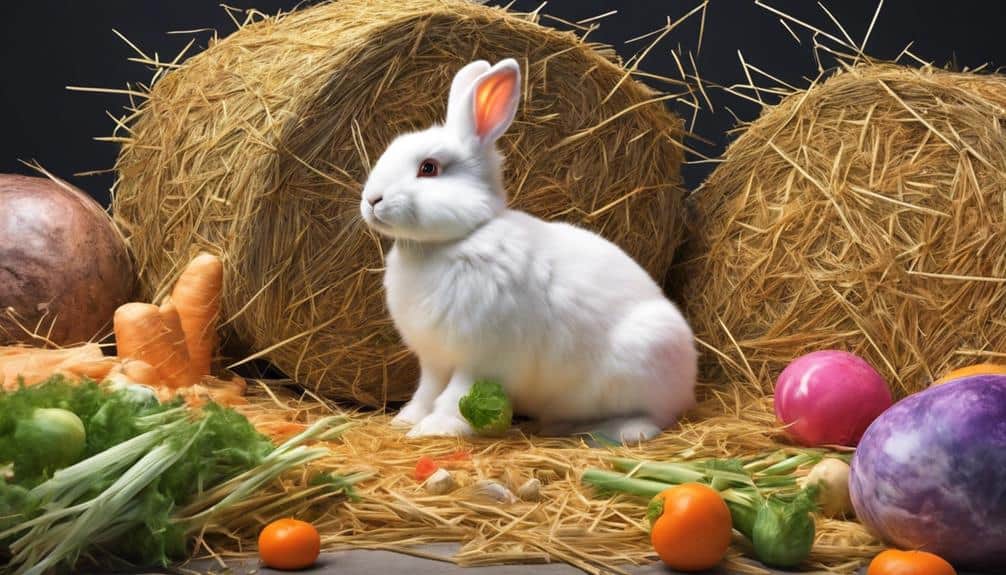
Hay serves as an important dietary staple for rabbits, constituting approximately 80% of their food intake. This fibrous material is vital for maintaining your rabbit's overall health, especially their teeth. The constant chewing required when consuming hay helps wear down their teeth, which continuously grow. Without hay, a rabbit's teeth could overgrow, leading to dental issues that can affect their ability to eat properly. Additionally, the rough texture of hay supports good digestion by promoting gut motility and preventing hairballs.
Incorporating hay into your rabbit's diet is essential not only for dental health but also for their mental stimulation. Rabbits are natural foragers and grazers, and providing them with hay allows them to exhibit these instinctual behaviors. To ensure your rabbit stays healthy and happy, offer a variety of fresh, dust-free hays such as Timothy, Orchard Grass, or Meadow Hay. Remember, constant access to hay is key to supporting your rabbit's well-being.
Lettuce: Friend or Foe?
Bunnies can benefit from a well-selected variety of lettuce in their diet, with dark, leafy options like romaine being a favorable choice. When considering lettuce for your rabbit, remember that romaine lettuce is a friend, while iceberg lettuce can be a foe due to its lactucarium content.
To serve your furry friend best, introduce new lettuces steadily to prevent digestive issues and monitor their response closely. Opt for lettuces with higher fiber and essential nutrients to guarantee your rabbit's overall well-being. Additionally, rotating different types of lettuce can provide variety and secure a balanced diet for your rabbit.
Optimal Rabbit Nutrition
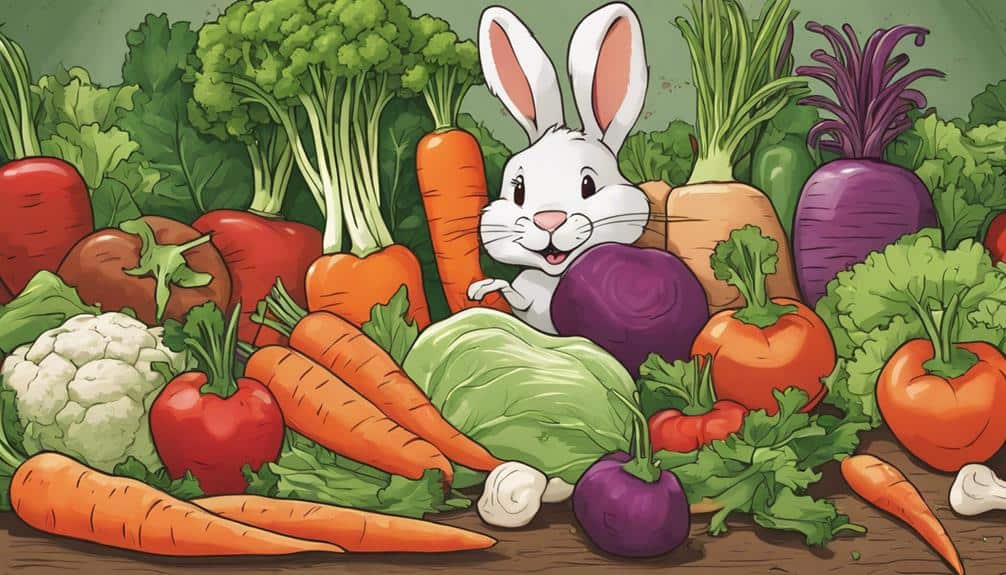
When it comes to providing best nutrition for your rabbit, it's important to offer a balanced diet that includes hay, grass, leafy greens, and measured pellets.
Carrots can be a tasty treat for your bunny, but moderation is key due to their high sugar content.
Overfeeding carrots could lead to health issues like obesity, dental problems, and digestive issues in rabbits.
Nutrients for Rabbits
For ideal rabbit nutrition, a balanced diet rich in hay, grass, leafy greens, and measured pellets is essential. To make sure your rabbit's health and well-being, remember these key points:
- Hay: Essential for wearing down teeth and maintaining gut health.
- Leafy greens: Provide additional nutrients and hydration, making up 10% of your rabbit's diet.
- Measured pellets: High-fiber pellets should make up 5% of their diet to guarantee enough fiber intake.
- Fruits: Offer as occasional treats only, as they should only comprise 5% of your rabbit's diet due to their high sugar content.
- Water: Always make certain fresh, clean water is available for your rabbit to drink.
Balanced Rabbit Diet
To guarantee top nutrition for your rabbit, a balanced diet comprising hay, grass, veggies, and leafy greens is essential. Rabbit food should primarily consist of unlimited hay or grass, which provides necessary fiber for digestion and dental health.
Veggies like carrots can be included in moderation as an occasional treat, offering vitamins and minerals. It's important to limit carrot intake to one or two tablespoons per rabbit daily to prevent obesity and digestive problems. While rabbits may enjoy carrots, these root veggies shouldn't replace the core components of their diet.
Bunny Friends and Diet
When considering your bunny's diet, it's important to remember that rabbits are social creatures that benefit from companionship. Understanding your bunny's preferences, incorporating carrots as occasional treats, and ensuring a balanced meal plan are key aspects of maintaining your furry friend's health and happiness.
Bunny Diet Preferences
In understanding bunny diet preferences, it's essential to recognize that rabbits enjoy a diverse array of foods beyond just carrots. When catering to your rabbit's dietary needs, consider the following:
- Hay: Essential for digestion and dental health.
- Grass: A natural and healthy option for rabbits to graze on.
- Leafy Greens: Provide essential vitamins and nutrients.
- Measured Pellets: Balanced nutrition in controlled portions.
- Limited Carrots: Offered as occasional treats due to their high sugar content.
Carrots as Treats
Considering the varied dietary needs of bunnies, it's important to understand the role of carrots as treats in their overall nutrition. While rabbits enjoy carrots, they should be limited to 1-2 tablespoons per rabbit daily as treats. Overfeeding carrots can lead to obesity and digestive issues in rabbits since carrots are not a substantial source of nutrition for them. Rabbits eat primarily hay or grass for a balanced diet. It's important to note that carrots contain lactucarium, which can act as a mild sedative, and are high in water content, helping to keep bunnies hydrated. Bugs Bunny's love for carrots contributed to the misconception about rabbit eating habits.
| Key Points | Details |
|---|---|
| Quantity of Carrots | 1-2 tablespoons per rabbit daily |
| Potential Risks | Obesity, digestive issues if overfed |
| Nutritional Importance | Not a substantial source of nutrition |
| Hydration | High water content, helps keep rabbits hydrated |
Balanced Bunny Meals
For a balanced bunny diet that promotes excellent health, prioritize hay, grass, leafy greens, and measured pellets for essential nutrition. Remember, these are the main sources of food that provide the vitamins and minerals your furry friend needs to thrive. Additionally, as rabbits have continuously growing teeth, the fiber in hay helps wear down their teeth naturally.
To guarantee your bunny's well-being, be mindful of the following:
- Hay and grass are essential for dental health and gut function.
- Leafy greens like romaine lettuce offer important nutrients.
- Measured pellets provide essential vitamins and minerals.
- Carrots should be occasional treats due to their sugar content.
- Diverse foods prevent weight gain and promote excellent health.
Combatting Pet Obesity
Combatting pet obesity in rabbits requires careful monitoring of portion sizes and a balanced diet to prevent serious health issues. Pet obesity is prevalent, affecting approximately 60% of pet rabbits, often due to overfeeding high-sugar foods like carrots.
To combat this, it's important to control portion sizes and limit treats such as carrots, as excess weight can lead to severe problems like joint issues and diabetes in rabbits. Seeking guidance from a vet on proper portion control and designing a balanced diet tailored to your rabbit's specific needs can greatly aid in preventing pet obesity.
Frequently Asked Questions
What Is Bunny's Favorite Food?
Your bunnies' favorite treats are not carrots. They thrive on a hay diet, balanced with leafy greens and measured pellets. Keep their nutrition in check to avoid health issues. Carrots are occasional treats, not staples.
Do Wild Bunnies Eat Carrots?
In the wild, bunnies don't typically eat carrots as they focus on foraging habits for grasses and greens. Their natural diet consists of such foods, making carrots more of a treat than a favorite.
Why Do Bunnies Like Carrots so Much?
You love how bunnies crave carrots for their nutritional benefits, taste preferences, and cultural influences. The sweetness and crunch of carrots attract them, providing a satisfying chew and hydration. Remember, carrots are treats, not staples for bunnies' health.
What Vegetables Can Rabbits Not Eat?
You should avoid feeding rabbits poisonous vegetables like iceberg lettuce, chard, avocado, and rhubarb. Opt for safe alternatives such as leafy greens, carrots, and herbs. Stay away from harmful foods like bread, pasta, and crackers for your rabbit's health.
Are Carrots and Celery Safe for My Bunny to Eat?
Yes, bunnies can safely eat carrots and celery in moderation. These vegetables provide essential nutrients and fiber for bunnies and celery consumption is good for their teeth. However, too much of these high-sugar treats can cause health problems, so limit the snacks to a small amount each day.
Conclusion
So, do bunnies like carrots?
The truth is, while bunnies may enjoy the occasional carrot as a treat, their diet should primarily consist of hay, grass, leafy greens, and measured pellets. Carrots should be given in moderation due to their high sugar content.
Remember, proper nutrition is essential for your bunny's health and well-being, so make sure to provide a balanced diet to keep your furry friend happy and healthy.

